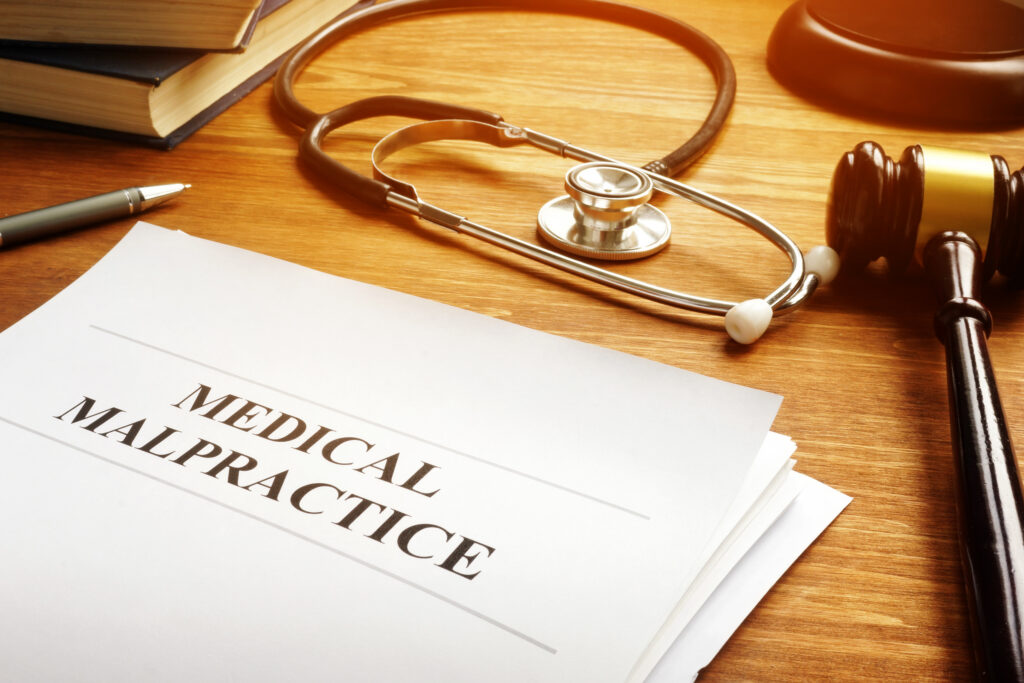Medical errors can have devastating consequences, leaving patients with serious injuries, emotional trauma, and unexpected financial burdens. When a doctor’s mistake leads to harm, patients often wonder who is legally responsible—the individual physician, the hospital, or both.
In Pennsylvania, hospitals and healthcare employers may be held accountable for a doctor’s negligence under the legal doctrine of vicarious liability, which is based on the respondeat superior principle. This means that, under certain circumstances, a hospital may be legally responsible for malpractice committed by its doctors.
However, not all doctors are hospital employees. Many are independent contractors, which can complicate liability claims. This article explains when and how hospitals can be sued for a doctor’s malpractice in Pennsylvania, the key legal principles involved, and what injured patients need to prove in order to hold a hospital accountable.
Understanding Vicarious Liability in Medical Malpractice
What is Vicarious Liability?
Vicarious liability is a legal doctrine that allows a hospital or employer to be held responsible for the negligence of an employee if that negligence occurs while the employee is performing job-related duties. This principle is particularly relevant in medical malpractice cases, where both doctors and the institutions they work for may be named in a lawsuit.
What is the Respondeat Superior Doctrine?
The respondeat superior doctrine—Latin for “let the master answer”—is the legal principle that employers are responsible for the wrongful acts of their employees, as long as those acts were committed within the scope of employment.
For a hospital to be held liable under respondeat superior, the following conditions must be met:
- The doctor must be classified as an employee of the hospital.
- The malpractice must have occurred while the doctor was performing job-related duties.
If a hospital meets these criteria, it can be held financially responsible for damages caused by the physician’s negligence.
When Can a Hospital Be Liable for a Doctor’s Mistake?
Hospitals in Pennsylvania are not automatically responsible for medical malpractice committed by doctors. The court will assess whether the hospital had a direct or indirect role in the physician’s negligent care.
1. Was the Doctor an Employee or an Independent Contractor?
The most crucial factor in a vicarious liability case is determining whether the doctor was an employee or an independent contractor. Pennsylvania courts examine factors such as:
- Who sets the physician’s work schedule?
- Does the hospital pay the physician’s salary and benefits?
- Does the hospital dictate medical protocols and procedures?
If the hospital directly controls the doctor’s work and employment conditions, the doctor is more likely to be considered an employee, making the hospital liable for malpractice.
However, many hospitals employ doctors as independent contractors, which can limit liability. If a hospital proves that a doctor was an independent contractor, it may avoid legal responsibility.
2. Did the Malpractice Occur Within the Scope of Employment?
Even if a doctor is an employee, the hospital is only liable if the malpractice occurred within the doctor’s job duties. The hospital is not responsible for:
- Medical advice given outside of work hours.
- Errors committed while the doctor was performing unauthorized procedures.
- Actions taken outside the scope of employment, such as personal medical consultations.
If the hospital can show that the physician’s actions were outside of employment duties, it may avoid liability.
Hospitals Can Be Liable Even for Independent Contractors
What is Apparent Agency?
Even if a doctor is not a hospital employee, a hospital may still be held responsible under apparent agency liability. This occurs when a hospital leads patients to believe that a doctor is part of its staff, even if they are actually an independent contractor.
Courts will consider whether:
- The hospital publicly lists the doctor as part of its staff.
- The hospital failed to disclose that the doctor was an independent contractor.
- The patient reasonably believed the doctor was employed by the hospital.
Case Example: Apparent Agency in Pennsylvania
In a Pennsylvania case, a hospital was found liable for a surgeon’s malpractice even though the doctor was an independent contractor. The hospital had advertised the doctor as part of its staff and never informed the patient that the physician was not an employee. The court ruled that the hospital created an employer-employee appearance, making it responsible under the apparent agency doctrine.
How to Prove Vicarious Liability in a Medical Malpractice Case
To successfully hold a hospital accountable, patients must present strong legal evidence. Key forms of proof include:
1. Employment Contracts and Hospital Policies
Reviewing employment contracts can determine whether a doctor is an employee or an independent contractor.
2. Control Over Medical Decisions
Hospitals that dictate treatment protocols, schedules, and supervision are more likely to be held liable.
3. Hospital Advertising and Patient Testimony
If a hospital markets a doctor as part of its team, it may be responsible for the doctor’s malpractice.
Defenses Hospitals Use to Avoid Liability
Hospitals often argue that they are not responsible for a doctor’s malpractice. Common defenses include:
1. The Doctor Was an Independent Contractor
Hospitals may present employment contracts proving that the doctor was not an employee, absolving them of liability.
2. The Doctor Acted Outside of Work Duties
Hospitals may claim that the malpractice did not occur during employment, especially if the doctor was treating patients outside of work hours.
3. The Hospital Did Not Control Medical Decisions
Hospitals may argue that doctors had full medical autonomy, limiting their ability to supervise or intervene in malpractice incidents.
What to Do if You Suspect Medical Malpractice
- Collect Evidence: Gather medical records, hospital communications, and any documentation proving the hospital’s role in your treatment.
- Get a Second Medical Opinion: A second opinion from another doctor can help confirm whether malpractice occurred.
- Consult a Medical Malpractice Attorney: An experienced lawyer can evaluate your case, gather necessary evidence, and represent your legal rights.
Frequently Asked Questions About Vicarious Liability in Pennsylvania
Can I sue a hospital if my doctor was negligent?
Yes, but only under specific legal circumstances. You must prove that the doctor was an employee of the hospital and that the malpractice occurred while they were performing job-related duties. If the doctor was an independent contractor, the hospital may not be liable unless it created the appearance that the doctor was part of its staff.
What if my doctor was an independent contractor?
If your doctor was an independent contractor, the hospital is typically not responsible for their negligence. However, if the hospital presented the doctor as an employee and did not clearly inform you that they were an independent contractor, you may still have a case under the apparent agency doctrine.
How can I tell if my doctor was an employee or an independent contractor?
The best way to determine this is by reviewing the doctor’s employment contract and examining hospital policies. Courts will also look at factors such as who controlled the doctor’s work schedule, who paid their salary, and whether the hospital dictated their treatment decisions. If the hospital exercised significant control over the doctor’s work, they are more likely to be considered an employee.
What evidence do I need to prove vicarious liability?
To prove vicarious liability, you will need to gather hospital records, employment contracts, and any evidence showing that the hospital controlled the doctor’s work. Witness testimony, hospital advertisements, and patient agreements can also help establish that the hospital led you to believe the doctor was part of its staff.
Can a hospital be held responsible for a visiting or on-call doctor’s mistakes?
It depends on the circumstances. If the hospital exercised control over the visiting doctor’s work and made them appear to be an employee, the hospital could be held liable. However, if the doctor was brought in as a temporary contractor with no oversight from the hospital, liability is less likely.
Contact Purchase, George & Murphey, P.C. Today
Understanding vicarious liability in Pennsylvania medical malpractice cases is essential for patients who have suffered due to medical negligence. Holding a hospital accountable can be complex, especially when independent contractor agreements and apparent agency claims come into play.
If you or a loved one has been harmed due to medical malpractice, speaking with a qualified Pennsylvania medical malpractice attorney is crucial. A lawyer can help you determine if a hospital can be held responsible for your injuries and fight for the compensation you deserve.
Don’t wait—contact Purchase, George & Murphey, P.C. today for a free consultation.














